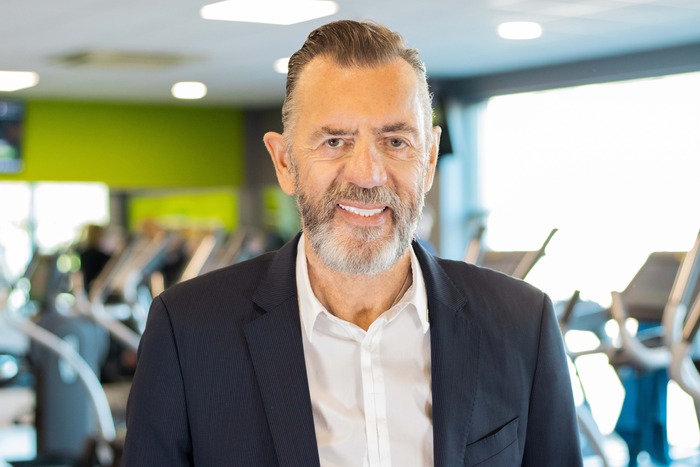If you are interested in sponsoring the Founder Series please email founders@sbnn.co.uk
With high profile clients including Arla, Bayer, Colgate-Palmolive, Nestle and Fever Tree, marketing-tech company Adimo is almost a veteran in the tech space having started in 2012.
Founder and CEO, Richie Kelly describes the sector they work in and the growth of the company over the last 6 years.
What does Adimo do?
Adimo is founded on the belief that marketing should use technology to make people’s lives easier.
As such, Adimo is a marketing tech company that makes grocery shopping easier by letting users add products to their favourite online shopping basket from almost any piece of marketing content, whether that’s an online advert, a Facebook post, a video or even physical billboards and product packaging. Brands love our technology as it transforms marketing and adverts into checkouts and helps them sell products, whereas consumers respond to our technology because it makes marketing content useful for them. Our shoppable tech injects convenience into the buying process, making content useful for consumers who are tired of stale marketing techniques. We’re working with the likes of Nestle, PepsiCo, Arla and others to disrupt how big consumer goods giants market themselves.
Today our tech is being applied to more and more contexts than ever before, making the leap from screens to the physical world. Whether it’s replenishing your favourite cereal using your voice, or tapping an actual product, tech is moving at such a pace that we can put a shopping opportunity in any situation. For example, you can place an RFID [Radio-frequency identification] chip into almost any object, whether that’s a billboard or a pint glass, and turn it into a convenient, instant checkout for customers. For example, imagine being in a restaurant and enjoying a bottle of wine with your meal that you want to try again. Rather than writing it down then trying to figure out where to find it – or more likely forget entirely – you would simply tap your phone against it to add it to your virtual basket. That’s the level we’re currently at, and brands are starting to realise that consumers are motivated just as much by convenience and access to products as they are by price. It’s an exciting time for us.

What is your role?
I’m the founder and CEO of the company. When we started I used to be the Accountant, Project Manager, and Caretaker too, but now we’ve grown I thankfully no longer need to do those things. Which is good, because I was absolutely dreadful at them.
What is your background?
I’m originally from North England, but came to Glasgow for University and never really left after landing extremely satisfying roles straight out of university. I began my career in digital marketing agencies, starting in the paid search space before quickly gaining experience across other digital channels too. I have always loved the feeling of making measurable progress, so the fast testing and iteration of digital gripped my from the outset. These marketing agencies were a great place to foster this, with tight deadlines forcing quick but effective thinking.
[adbutler zone_id=’297765′]
What was the aha moment that led to the company founding?
I experienced the problems Adimo solves first hand during my agency days as a digital marketer when I began working for FMCG clients. I’d use client budgets to send shoppers to the brand’s site, which did a great job of advertising the products, but a terrible job of selling them. Shoppers had the burden of search, whether it was tracking down the product in store or navigating away to a supermarket’s website. This struck me as being broken on two fronts: as a shopper, it was a time-consuming, unsatisfactory experience, placing an obstacle to me buying a product it had just persuaded me to want. As a marketer, it meant there was no direct way to demonstrate our work was leading to sales, and consequently no way to optimise the marketing techniques we were using. I found both of these things hugely frustrating. I desperately wanted to insert a button onto my client’s website that would place a product into the visitor’s Tesco.com basket (or their favourite grocer) to add it to their weekly shop. This would mean it would be delivered with the rest of their weekly shop, removing the fuss of needing to enter card detailers there and then, and not asking the customer to remember and hunt for the product when they’re next instore.
Fast forward a few years and we have a platform that can do that across any form of marketing, backed up by sophisticated analytics and a lot of clever people.
Where did you get assistance when you started?
Even though the ecosystem to support new startups was only a fraction of what it is today, we were lucky enough to get support from a lot of people. A lot of this came from our own hustle and reaching out to people who then introduced us to others. Individual mentions going to Stuart Cosgrove of Channel 4, who I think was the first person to really help us with some meaningful introductions, Catriona Campbell of Foviance who introduced us to Sainsbury’s, Steven Morris of ESM investments who introduced us to the right people at Scottish Enterprise, and Nick Jones of Galvanise who connected us to lots of people and investors in the London scene.
On the topic of Scottish Enterprise, whilst they are often criticised, our experience has been a positive one. They’re not perfect, but no government agency could be. For Adimo, they have been valuable in many ways, from helping part-fund key hires, to bringing over global talent like MIT’s Bill Aulet to run workshops, to networking us into other businesses. The support of Scottish Enterprise has been instrumental to getting us where we are today.
On a side note, banks were far less useful and very poorly equipped to offer any help to a fledgling innovation business. I hope this has changed with the likes of RBS participating more in the space, but given their huge clout the contribution of banks in general could be far greater.
Finally, it goes without saying that our investors have been instrumental in getting us to where we are today. The value of having domain experts with both capital and a willingness to invest it makes a significant difference to the pace of a startup’s growth, so I am always thankful to our investors for seeing Adimo’s potential and backing us in our early stages.
Give us a brief history of the growth of the company
I launched Adimo with my co-founder and CTO Colin Brown in Glasgow in 2012, and in our early days we mainly focused on turning online advertising shoppable. The best part of launching in this city is the steady stream of highly skilled tech developers streaming out of the three universities and from further afield, and we were soon able to build a small team which could expand the applications of our tech.
We bootstrapped our way to four staff, then took on some small seed funding to grow the team and further build out our product based on customer feedback. One of these hires was our now-COO Gill Smith, who Colin and I had both worked with previously and were very excited to bring on board. Gill is now very much the third musketeer and added much needed operational skills to the business.
By the end of 2015, our technology was now integrated with more than 100 retailers across 20 countries and after adding further clients to our roster we were able to raise more than £1 million in seed funding in late 2016. We’ve since used this to expand our presence into London, an essential step given that most of our major prospective clients were based there.
Today we’re growing at a rapid pace, continuing to acquire new clients and build out our product. but crucially we’re also widening our activity with brands we’ve been working with for years. These older partners have seen the results and trust us, which means we can be more daring with how we implement our tech. We’ve gone from tinkering with online advertising to making roadside billboards into an instant checkout which consumers can shop through using their phone.
Have you taken any external funding? If so from who and when?
After completing an initial seed round in 2014, in 2016 we raised more than £1m from investors including the Scottish Investment Bank, Stirling-based angel syndicate ESM Investments, Galvanise Capital and a number of individual angels including Patrick Griffith, co-founder of digital agency Havas Work Club.
So what does it look like now with regard to staff and turnover?
We’ve doubled our turnover year on year as a result of adding some fantastic new brands to our roster over the past 12 months, including Arla, Bayer, Colgate-Palmolive and more, whilst also increasing the scope of work we do with existing customers such as Nestle and Fever Tree. As such we’ve expanded both our premises in Glasgow and London, reinforcing our Account Management, Development and Sales departments.
What’s the difference between when you started and now in your marketplace?
When we first launched, the idea of shoppable technology was fairly simplistic, point-A-to-point-B affair. Brands recognised the value of transforming an online advert that most people would simply ignore into a functional check-out. Today, technology and consumer’s attitudes towards it are far more sophisticated, and this means the potential uses are far more complex. We’re seeing online customers go to a food brand’s websites for meal recipes, and using shoppable tech to instantly add all the ingredients to their weekly shop.
There are also more touchpoints with technology today than there were when we first launched, and this means consumers can interact with a brand beyond their computer screen, whether that’s using their voice to purchase an item over Alexa or scanning a physical billboard with their mobile. In many ways, consumers have become far more adventurous with technology than they were five years ago, and brands are playing catch-up, trying to work out where else they can implement shoppable tech and make the shopping experience more convenient for their customers. This is what we excel at and love helping our customers achieve.
What is your target market?
Grocery shopping is seen as something of a chore for most people, and our technology adds that extra level of convenience, letting people instantly add an item to their weekly shop. This means we’re particularly well-suited to fast-moving consumer goods, as these are items that people regularly need to replenish. However, we’re also working with cosmetics companies too, in addition to brands from other CPG sectors.
What are your goals for your business?
We’re already working with some of the world’s biggest FMCG brands in Europe, and we’re now turning our attention more towards overseas markets. We’re particularly excited by Asia and the US, where consumer relationships with online shopping and brands are markedly different to their European counterparts. For example, today’s Chinese consumers are far more comfortable purchasing on mobile than their Western counterparts, and also have more choice in how they do it. This opens up a whole new breadth of opportunities for us.
What are your biggest current challenges?
Keeping at the forefront of what we do is very important to us, and with the pace of change in the industry increasing rapidly it’s crucial we evolve fast to maintain our position as market leaders. But conversely this is also one of the most satisfying aspects of the business.
Awareness of what we do can also prove challenging. The problem we solve is global, so we are working hard to increase knowledge of what we do outside of Europe. Obviously driving worldwide awareness is not something you can achieve overnight, but fortunately our target customers play very specific roles inside their businesses and are frequently tasked with finding ways of improving the way they sell to consumers, meaning they’re frequently on the lookout for tech like ours.
What has been the biggest challenge so far?
Shoppable and Buy It Now tech has so much potential that one of our biggest early challenges was actually reigning in our R&D and actually dedicating enough time to client acquisition. When we initially built our first prototype and realised there were plenty of different things the tech was capable of, we instantly tried to develop all aspects. But by stretching the technology to try and solve every problem in FMCG ecommerce, we were drawn further away from our original goal, which was create a mechanism that made a customer’s life easier and a marketer’s work more transparent. Luckily we learned from that fairly swiftly, and resolved to focus on doing one thing and doing it well.
What do you do outside work?
I don’t get as much time to do it as I’d like to, but my main passion outside of the business is mountain biking. The fact I continue to live in central Scotland is owed in no small part to the staggering amount of natural beauty that’s so quickly accessible. Being able to jump on my bike and throw myself down a hill too steep to walk up helps me reset my brain and think clearly. I think a lot more could be done to help Scottish startups attract talent from elsewhere in the UK just by showing the quality of work / life balance available here.
What do you know now that you wished you had known earlier?
Follow processes wherever possible. It’s not the glamorous, swashbuckling side of entrepreneurship, but time spent developing a proposition at the outset will save you lots of pain in the long term. When Colin and I first started Adimo, we didn’t know about any of this and as a consequence ran the business very reactively. You still learn this way, but you learn the hard way. Following a process can shortcut this and will increase your odds of success.
If I could say one thing to my 2012 self, I’d just mutter ‘Read this’ and shove a copy of “Disciplined Entrepreneurship” by MIT’s Bill Aulet into my hand. The book has an excellent, proven methodology and explains that entrepreneurship is not an innate skill, but a process that can be followed by anyone. The best part is that it lays out that process for you every step of the way, and forces you to consider lots of detail you may not otherwise have thought about as you rush to market.
What’s the secret to good leadership?
Accept that even if you launched a company, you can’t be an expert on everything. I’ve been lucky enough to hire some of the smartest people working in tech and marketing, and our success is down not to my original idea but their ability to execute on it. So take time hiring to find good people, give them clear objectives to the point of over communication, and then give them autonomy to achieve them.
Where do you see the company in five years?
The market we operate in is changing so quickly that there is opportunity to grow in a number of directions.
This involves increasing our scale internationally. Our tech can be applied globally, our customers operate worldwide, and the problem we solve is one being experienced by brands in every continent, so this is the next natural step.
Secondly, we pride ourselves on the customer relationships our awesome team have developed – when reviewing prospective new hires, we’ll ask whether they were “just helpful, or Adimo helpful?” Thanks to the tremendous customer relationships our team has built with clients, we have a understanding of the pain points facing major brands. This means we’ve been able to focus our product roadmap on building on our core tech stack to better solve the challenges keeping brands up at night. Whatever tech we develop for the future, it will be based on making shoppers’ lives easier and creating more effective marketing campaigns.
How can the Scottish startup/entrepreneur landscape be improved to help more businesses start up and grow?
I’m immensely proud to be part of Scotland’s tech community, but it’s a simple fact that we’re still not great at shouting about how good it is to set up a business here, or putting the infrastructure in place to truly compete with London. We need to let people know how fantastic it is to live, work and invest here. The big obstacles for Scottish startups are access to talent and access to prospective clients. There aren’t enough skilled tech workers and big corporates based in Scotland to feed our rapidly expanding population of innovative startups, and that needs to change. We need to get better at promoting Scotland’s USPs while also cracking on and meaningfully improving our digital infrastructure.
Richie Kelly is founder and CEO of Adimo, a marketing technology company.
If you would like to take part in the Founder Series please email founders@sbnn.co.uk
If you are interested in sponsoring the Founder Series please also email founders@sbnn.co.uk




